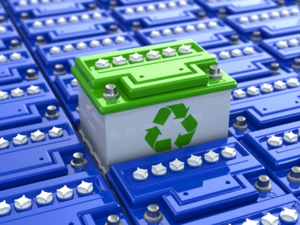
Electric vehicles are gaining traction in the automotive market and many of the largest manufacturers are predicting a move away from the internal combustion engine in the coming decades. Lithium-ion batteries are the foundation technology of electric vehicles with lifetime expectancy of 15-20 years. A lithium-ion battery is a type of rechargeable battery. The 2 main Lithium battery types are Lithium Iron Phosphate and Lithium Nickel Cobalt Manganese which is the main focus of our project. The cumulative burden of electric-vehicle waste is substantial given the growth trajectory of the electric-vehicle market.
Recycling of lithium batteries has both environmental and economic benefits. The whole recycling process includes: The pretreatment to separate the cathode active materials from other battery components and the hydrometallurgy process to recover the valuable metal species from the cathode. As more Lithium batteries continue to grow, then so does the pollution if not recycled responsibly.
The hydrometallurgical method is the most widely adopted method for the recycling of lithium-ion batteries, because of its high recovery efficiency and low energy consumption. Hydrometallurgical process is more of a chemical process. Firstly, the spent lithium-ion battery should be subjected to some types of physical processes as a pre-treatment in order to separate the cathode materials from other materials. Secondly, the separated cathode materials will be used to recover cobalt and other metals through a series of chemical processes.
In our project, we designed a chemical plant that utilizes a Hydrometallurgy process capable of 95% recycling efficiency. The products collected are metal-salts that can be manufactured back into Lithium Batteries, or can be sold as they are to a variety of other market sectors. This type of versatility gives our process an advantage over other alternative battery recycling methods proposed. In addition to eliminating contamination and pollution from the environment, this type of advanced recycling plant will also create jobs and generate its own revenue from the products recovered.
| Attachment | Size |
|---|---|
| 935.66 KB |

